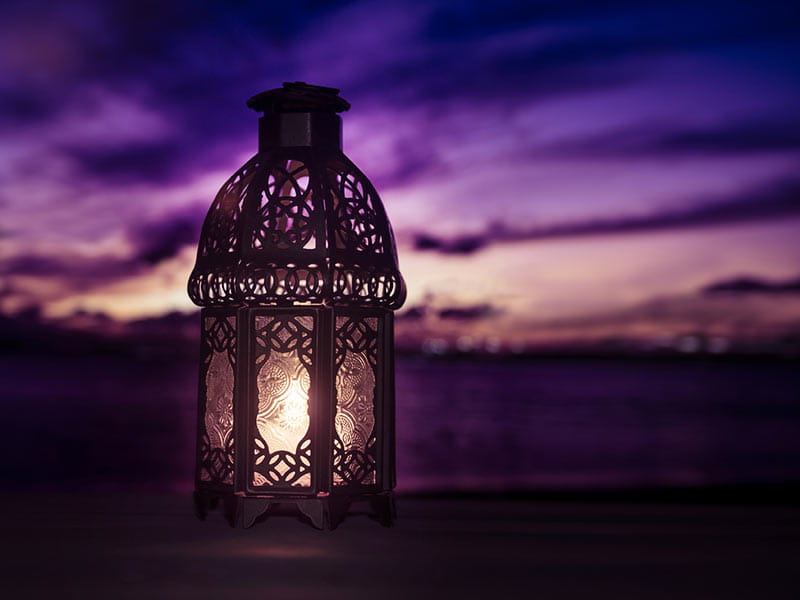"We have to look at these times as an opportunity to introduce ourselves correctly to the American people," said Mohammed, who is seen as having helped turn hundreds of thousands of U.S. Muslims back toward an Orthodox and traditional interpretation of Islam and away from the separatist ideas once preached by his father, the late Elijah Muhammad, founder of the Nation of Islam.
"We should be preparing to present ourselves in the best way, so people will know us and not fear us," Wallace Mohammed said. "Nobody should be feared by their neighbors."
Mohammed has delivered prayers at both Clinton inaugurals and delivering a speech at the Vatican, at the invitation of Pope John Paul II.
In an interview, the imam said that, while many more Americans have expressed "interest" in Islam since the Sept. 11 attacks, the new interest has not necessarily made life for Muslims any easier.
"I have to be honest with you, even I have experienced more difficulty," said the man who, according to some, is the voice for an estimated million or so African-American Muslims in the United States. "When I go into a restaurant and tell them my name is Mohammed, people start to get a little nervous."
The imam also acknowledged that not all Muslims are sure what to think of his attempts at building bridges with Christians and Jews. "Inside our group, most are very happy and proud at the reception that I got at the Vatican. But I think there's some caution on the part of most immigrant Muslim leaders. They are a bit nervous."
He also acknowledged that, in no country in the Muslim world, is there a flourishing democracy where people are allowed to practice and live their religion, as they do here in the United States. But that doesn't mean democracy and religious freedom are incompatible with Islam, he said.
On the contrary, "I'm convinced that what our Founding Fathers wanted for this society, in terms of everybody being at home, is exactly what all the great religions want, including Islam," he said.
"I think we are becoming a model community small, but a model community that is arousing interest in Islamic governments."
Mohammed said that, when he visits Saudi Arabia in April, he will try to make the argument that the Saudis need to open up their country to other religions if not in the areas of the holy places, then at least in the business centers. "Will they listen to me? I don't think so. But I'll try to speak to them when I have an opportunity. Who knows? Maybe I will have an influence."
Since his father's death in 1975, Mohammed has created a new organization, the Chicago-based Muslim American Society, while some of the more militant members of Elijah Mohammed's organization have followed the banner of Louis Farrakhan, whose rhetoric struck many people as anti-white and anti-semitic.
The two were sometimes seen as bitter rivals. But two years ago, the two leaders joined in a public reconciliation after Farrakhan, emerging from a near-death experience with prostate cancer, signaled that he, too, was ready to move away from the inflammatory rhetoric of his past.
Mohammed said that he will be meeting again with Farrakhan on Feb. 13, in Los Angeles, and he believes that Farrakhan's move toward traditional Islam is genuine. "I know he is very uncomfortable with the way he presented himself in the past," Mohammed said.
Though some would say that Farrakhan's rhetoric was more in keeping with the teachings of Elijah Muhammad than were those of his son, the son says that's not entirely so. "There was a brief period in his [my father's] leadership when he proposed that blacks have their separate state," Wallace Mohammed said. "It was during the civil-rights upheaval, when there was a lot of ugliness coming about."
What many people including Farrakhan failed to understand, he said, was that Elijah Muhammad's call was merely a strategy, an attempt to get the nation to move on civil rights. "He never said that we had to separate .... When America became a good place for black Americans to live, then Farrakhan should have understood that my father would have wanted us to embrace this country and embrace this time," the imam said.
So it's not true, he said, that he, Wallace D. Mohammed, has taken this nation's black Muslims in a direction his father wouldn't have wanted to go. "Two years before his death, my father said, 'I say this from the bottom of my heart, if the white people can treat you with respect, then you treat them with respect.'"
On the matter of Israel and the Palestinians, the imam said he has the same answer that he gave seven or eight years ago, when he was a guest of Palestinian leader Yasser Arafat: the two sides will only make real progress for peaceful co-existence and cooperation when they look at the "whole context" of what their scriptures have to say, instead of only at those passages that support their dislike for the other.
"If I have a clean heart and an innocent heart, and [am] not looking for something to support my war against the Jewish people, I can find much more in the Koran to support my working out a peace that will enable us to live as neighbors."
And does he think that Arafat and Israeli Prime Minister Ariel Sharon both want peace? "Yes, sir, I believe they do. I know Arafat wants peace. I've had a chance to get very close to him. I know he wants peace and doesn't hate Jews. Sharon is a military man. I don't know him, but I believe he also wants peace."

